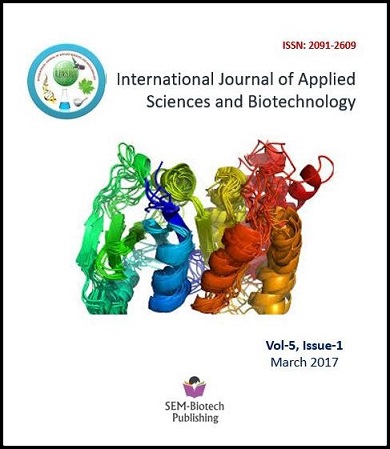Cloning and Expression of Alpha Hemolysin Toxin Gene of Staphylococcus aureus Against Human Cancer Tissue
DOI:
https://doi.org/10.3126/ijasbt.v5i1.17000Keywords:
Staphylococcus aureus, Alpha hemolysin toxin, Sequencing, Cloning, Anticancer tissueAbstract
Recombinant technology has crucial impact in therapy development. In microbial environment, Pathogenic bacteria such as Staphylococcus aureus produces alpha hemolysin protein. This protein is used as anticancer protein. In our study, alpha hemolysin toxin (hia) gene was isolated from S. aureus isolate. The isolate of S. aureus was isolated from blood samples of patients at Microbiology laboratory of Chlidren Mansoura Unversity Hospital. The purified PCR of hia gene of S. aureus strain was subjected to sequencing and cloning. Recombinant alpha hemolysin toxin cloning was detected by PCR, and α- hemolysin protein was purified by Sphadex. The purified α-protein was used as anticancer against HepG-2 cells (human Hepatocellular carcinoma), HCT-116 cells (human colon carcinoma), MCF-7 cells (human breast cancer cell line) and A-549 cells (human Lung cancer cell line).
Int. J. Appl. Sci. Biotechnol. Vol 5(1): 22-29




